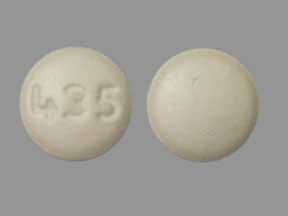
Acamprosate Coupons & Savings Card – Discount Prices from $67.04
Acamprosate is a medication prescribed to support individuals with alcohol use disorder in maintaining abstinence from alcohol. It is most effective for adults who have already stopped drinking. The drug functions by modulating the N-methyl-D-aspartate (NMDA) receptors, helping to restore the balance of certain neurotransmitters in the brain, such as gamma-aminobutyric acid (GABA) and glutamate. This action helps to reduce the craving for alcohol. Acamprosate is typically taken orally three times a day. Some common side effects include diarrhea, trouble sleeping, and nervousness. It is available in generic form, as the brand name Campral has been discontinued. Before beginning treatment with Acamprosate, it is important to cease alcohol consumption, as the medication is not effective for those who continue to drink while taking it. Always consult with a healthcare professional before starting any new medication.
Our coupons are free to use. Before paying, show the pharmacist your Acamprosate savings card to get your free discount. Use our filters below to edit the prescription box to match your needs. The Acamprosate prices will update based on your prescription needs. Above our Acamprosate coupons, you can change your location to see pharmacy prices and costs in other areas. We're here to help you buy Acamprosate at the lowest price with our prescription discount card.
My prescription
Edit
333MG, Acamprosate (180 Tablet Delayed Releases)
Select pharmacy

CVS
$67.04
COUPON PRICE
Walgreens
$73.21
COUPON PRICE
Walmart
$95.91
COUPON PRICE
Albertsons
$114.83
COUPON PRICEAcamprosate savings card
Show this card to your pharmacist
CVS
$67.04
BIN
ID
PCN
GRP
019876
LH9D6BAB56
CHIPPO
LHX
Powered by
Acamprosate is a medication prescribed to support individuals with alcohol use disorder in maintaining abstinence from alcohol. It is most effective for adults who have already stopped drinking. The drug functions by modulating the N-methyl-D-aspartate (NMDA) receptors, helping to restore the balance of certain neurotransmitters in the brain, such as gamma-aminobutyric acid (GABA) and glutamate. This action helps to reduce the craving for alcohol. Acamprosate is typically taken orally three times a day. Some common side effects include diarrhea, trouble sleeping, and nervousness. It is available in generic form, as the brand name Campral has been discontinued. Before beginning treatment with Acamprosate, it is important to cease alcohol consumption, as the medication is not effective for those who continue to drink while taking it. Always consult with a healthcare professional before starting any new medication.
Our coupons are free to use. Before paying, show the pharmacist your Acamprosate savings card to get your free discount. Use our filters below to edit the prescription box to match your needs. The Acamprosate prices will update based on your prescription needs. Above our Acamprosate coupons, you can change your location to see pharmacy prices and costs in other areas. We're here to help you buy Acamprosate at the lowest price with our prescription discount card.
Acamprosate dosage forms
Use our Acamprosate 333MG coupon with prices from $67.04 for 180 Tablet Delayed Releases. You can also use our Acamprosate 333MG coupon with prices from $3.02 for 1 Tablet Delayed Release. We have a Acamprosate 333MG coupon with prices from $18.07 for 30 Tablet Delayed Releases.
Dosage Quantity Price from Per unit 333MG 180 Tablet Delayed Releases $67.04 $0.37 333MG 1 Tablet Delayed Release $3.02 $3.02 333MG 30 Tablet Delayed Releases $18.07 $0.60
| Dosage | Quantity | Price from | Per unit |
|---|---|---|---|
| 333MG | 180 Tablet Delayed Releases | $67.04 | $0.37 |
| 333MG | 1 Tablet Delayed Release | $3.02 | $3.02 |
| 333MG | 30 Tablet Delayed Releases | $18.07 | $0.60 |
